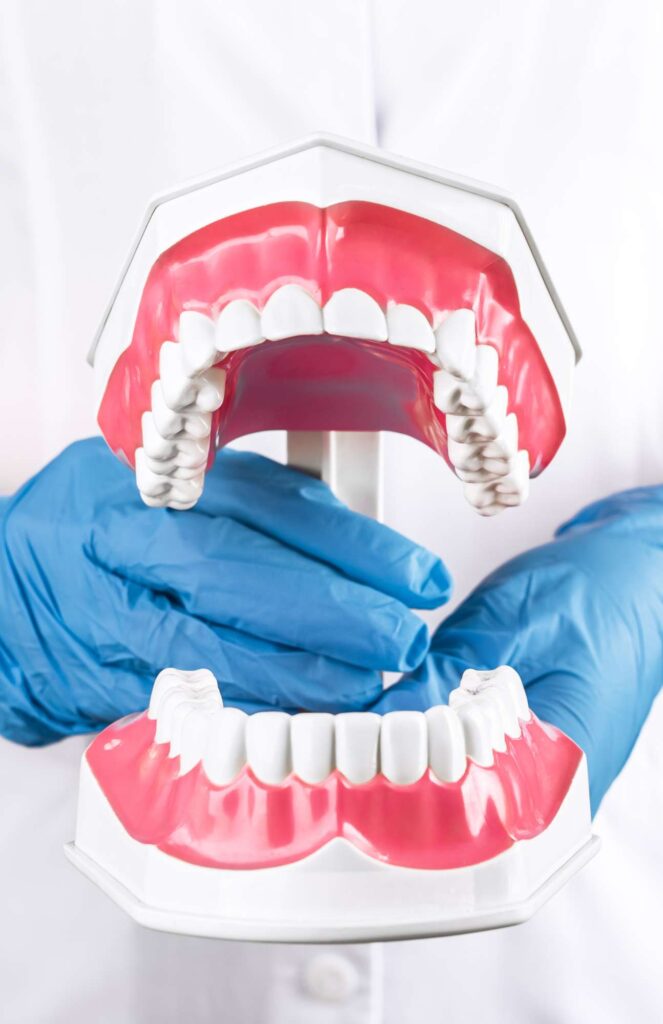Easy Solutions for TMJ Neck Pain and Discomfort
Last Updated on November 28, 2023 by Dr. Tiffany Egan
As someone who has experienced the discomfort of TMJ neck pain, I understand the impact it can have on daily life. The temporomandibular joint (TMJ) connects your jaw to your skull and plays a crucial role in activities like chewing, talking, and yawning. When this joint becomes dysfunctional, it can lead to a range of symptoms, including neck pain.
In this comprehensive guide, we will delve into the causes, symptoms, diagnosis, treatment options, lifestyle changes, exercises, alternative therapies, and prevention strategies for TMJ neck pain. By the end of this article, you will have a thorough understanding of how to effectively manage and alleviate TMJ-related neck discomfort.
Table of Contents
Understanding TMJ Neck Pain
TMJ neck pain is a common symptom of temporomandibular disorders or temporomandibular joint dysfunction (TMD). The TMJ is the most complex joint that allows for the movement of the jaw in various directions.
When the TMJ is not functioning properly, it can lead to pain and discomfort in the lower jawbone, face, and neck. The close proximity of the TMJ to the muscles of the neck means that dysfunction in the joint can often manifest as neck pain.
Individuals with TMD may experience a range of symptoms, including jaw pain, clicking or popping sounds when opening or closing the mouth, and difficulty chewing. TMJ and migraines have also been known to coincide with one another.
It’s essential to recognize the connection between TMJ dysfunction and neck pain to effectively address and manage the underlying issues.

Causes of TMJ Neck Pain
TMJ neck pain can stem from a variety of causes, ranging from physical to psychological factors.
One of the primary causes is excessive strain on the jaw joint and surrounding muscles (neck muscles, shoulder muscles), which can result from habits such as teeth clenching or grinding, poor posture, or excessive gum chewing. Jaw pain while pregnant is a common issue due to changes in posture and alignment.
Additionally, trauma to the jaw or neck area, such as a sports injury or car accident, can lead to TMJ dysfunction and subsequent neck pain or shoulder pain.
Furthermore, arthritis and other inflammatory conditions can affect the TMJ, contributing to discomfort in the neck region. Understanding the underlying causes of TMJ neck pain is crucial in developing an effective treatment plan to address the root of the issue.
Symptoms of TMJ Neck Pain
Recognizing the symptoms of TMJ neck pain is vital for early intervention and management. Individuals with TMJ-related neck discomfort may experience persistent pain or soreness in the neck, shoulders, and upper back. The TMJ pain can be exacerbated by movements such as chewing, talking, or yawning, making daily activities challenging.
Additionally, some individuals may notice other common symptoms such as limited range of motion in the jaw or neck, along with muscle stiffness. It’s not uncommon for TMJ neck pain to be accompanied by headaches, neck aches, earaches, and facial tenderness by the temporal bone (front of your ear or side of your face).
By being aware of these TMJ symptoms, individuals can seek appropriate care and support to address their TMJ-related neck pain.

Diagnosing TMJ Neck Pain
Diagnosing TMJ neck pain often involves a comprehensive evaluation by a healthcare professional.
A dentist or oral surgeon may conduct a physical examination of the jaw joint, checking for signs of inflammation, tenderness in the soft tissues, or irregular movement. In some cases, imaging studies such as X-rays or MRI scans may be ordered to assess the condition of the TMJ and surrounding structures.
It’s essential for healthcare providers to take a detailed medical history and inquire about the nature and duration of the symptoms. This thorough approach helps in accurately diagnosing TMJ-related neck pain, finding an underlying cause and formulating a tailored treatment plan.
Treatment Options for TMJ Neck Pain
When it comes to treating TMJ neck pain, various options are available to alleviate discomfort and improve jaw function.
One of the common approaches to TMJ treatment is the use of pain relievers and anti-inflammatory medications to manage painful symptoms.
For individuals with persistent or severe TMJ-related neck pain, muscle relaxants may be prescribed to reduce muscle pain and tension and promote relaxation.
In some cases, corticosteroid injections directly into the TMJ can provide relief from inflammation and pain.
Additionally, the use of oral splints or mouth guards can help in repositioning the jaw and alleviating pressure on the TMJ, thereby reducing neck discomfort.
These treatment options aim to address the immediate symptoms of TMJ neck pain while addressing the underlying causes of TMJ problems.
Lifestyle Changes to Alleviate TMJ Neck Pain
In addition to medical interventions, making lifestyle changes can significantly impact the management of TMJ-related neck pain.
Individuals can benefit from practicing stress-reducing techniques such as meditation, deep breathing, and yoga to minimize muscle tension and promote relaxation.
It’s important to be mindful of your jaw movements throughout the day such as habits like teeth clenching or grinding and make a conscious effort to avoid these behaviors. Soft foods are your friend!
When you are experiencing a flare up, you can use ice packs or warm compresses to help ease the pain.
Improving posture, especially when sitting and using electronic devices, can help in reducing strain on the neck and jaw muscles. These are some of the best tech neck exercises to try if sitting at the computer is bothering you.
Furthermore, maintaining a balanced diet and avoiding hard or chewy foods can ease the burden on the TMJ and alleviate chronic neck pain.
By incorporating these lifestyle changes, individuals can actively contribute to their overall well-being and manage TMJ-related neck pain effectively.
Exercises and Stretches for TMJ Neck Pain
Seeking out physical therapy can help with specific exercises and stretches that can play a pivotal role in relieving TMJ-related neck pain and improving jaw mobility.
Gentle jaw and neck exercises, such as opening and closing the mouth while keeping the tongue on the roof of the mouth, can help in strengthening the muscles and promoting proper joint movement of the jaw bone.
Additionally, neck stretches that focus on improving flexibility and reducing muscle tension can be beneficial.
Simple movements like gentle neck rotations, side-to-side head tilts, and chin tucks can aid in relieving stiffness and discomfort in the neck region.
It’s essential to perform these exercises under the guidance of a healthcare provider or physical therapist to ensure safety and effectiveness.

Alternative Therapies for TMJ Neck Pain
In addition to conventional treatments, alternative therapies can offer additional avenues for managing TMJ-related neck pain.
Acupuncture, a traditional Chinese medicine practice involving the insertion of thin needles into specific points on the body, has been found to provide relief for individuals with TMD.
Chiropractic care, which focuses on spinal alignment and musculoskeletal health, can aid in addressing underlying issues contributing to TMJ neck pain. Massage therapy targeting the neck, shoulders, and jaw muscles can promote relaxation and alleviate tension.
This is a great comparison between a Chiropractor vs Acupuncture treatment and how to choose the right one for you.
Furthermore, biofeedback techniques that help individuals become more aware of and control their body’s responses to stress and pain can be beneficial in managing TMJ-related neck discomfort.
Exploring these alternative therapies in conjunction with conventional treatments can offer a holistic approach to addressing TMJ-related neck pain. Here are some of the best home remedies for TMJ pain relief to give a try as well!
Preventing TMJ Neck Pain
Prevention plays a crucial role in managing TMJ-related neck pain and minimizing the likelihood of recurrence.
Practicing good oral hygiene and seeking prompt dental care can contribute to overall TMJ health. Individuals should be mindful of their chewing habits and avoid excessive gum chewing or biting hard objects.
Maintaining good posture and ergonomics, especially when sitting at a desk or using electronic devices, can reduce strain on the neck and jaw muscles.
Stress management techniques, regular exercise, and a healthy diet can all play a part in preventing TMJ dysfunction and subsequent neck pain.
By adopting these preventive measures, individuals can take proactive steps to safeguard their TMJ health and overall well-being.

Conclusion
In conclusion, TMJ-related neck pain can significantly impact an individual’s quality of life, but with the right approach, it can be effectively managed. By understanding the causes, symptoms, diagnosis, and treatment options for TMJ neck pain, individuals can make informed decisions about their care.
Implementing lifestyle changes, engaging in specific exercises, exploring alternative therapies, and adopting preventive measures can all contribute to alleviating TMJ-related neck discomfort. It’s important to seek guidance from healthcare providers and take a proactive approach to managing TMJ-related neck pain.
By addressing the root causes and implementing targeted strategies, individuals can find relief and improve their overall well-being.






